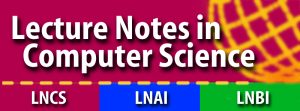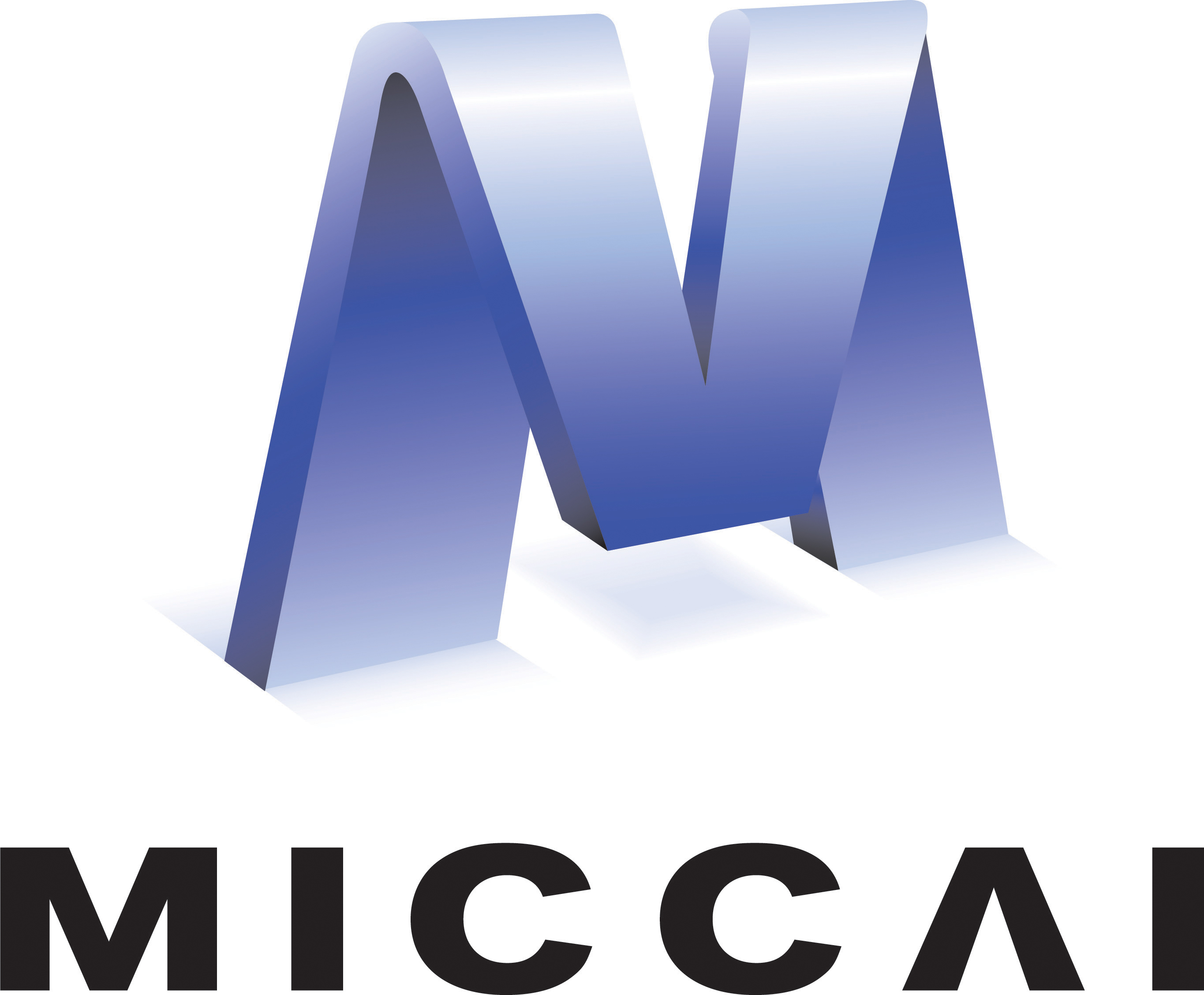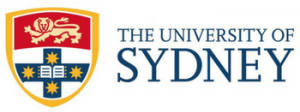Workshop Updates
October 13th: Video recordings of the workshop keynote talk and presentations are now available at: YouTube.
October 13th: Free online access to the workshop proceeding can be downloaded here. Note that the full proceeding is only accessible directed from this website, and will be available for 4 weeks.
September 8th: Full program of the workshop is now available, which can also be downloaded here.
August 12th: Inivtation letter for MMMI 2022 is now available for downloading here.
July 22nd: In response to the multiple requests, we have extended the deadline for submission to July 31st.
July 12th: This year we will have the honor to invite Prof. Arman Rahmim from The University of British Columbia for his keynote speech on "Towards Digital Twins for Precision Medicine"!
April 5th: Submission portal is now open.
We are offering multiple Best Paper Awards and Student Paper Awards, thanks to the support from our sponsors!
Because of this, submission deadline has been extended to August 7th.
Scope
The International Workshop on Multiscale Multimodal Medical Imaging (MMMI) aims at tackling the important challenge of acquiring and analyzing medical images at multiple scales and/or from multiple modalities, which has been increasingly applied in research studies and clinical practice. MMMI offers an opportunity to present: 1) techniques involving multi-modal image acquisition and reconstruction, or imaging at multi-scales; 2) novel methodologies and insights of multiscale multimodal medical images analysis, including image fusing, multimodal augmentation, and joint inference; and 3) empirical studies involving the application of multiscale multimodal imaging for clinical use.
Objective
Facing the growing amount of data available from multiscale multimodal medical imaging facilities and a variety of new methods for the image analysis developed so far, the MMMI workshop aims to move forward the state of the art in multiscale multimodal medical imaging, including both algorithm development, implementation of the methodology, and experimental studies. The workshop also aims to facilitate more communications and interactions between researchers in medical image analysis and machine learning, especially expertise in data fusion, multi-fidelity methods, and multi-source learning.
Topics
Topic of submissions to the workshop include, but not limited to:
Image segmentation techniques based on multiscale multimodal images.
Novel techniques in multiscale multimodal image acquisition and reconstruction.
Registration methods across multiscale multimodal images.
Fusion of images from multiple resolutions and novel visualization methods.
Spatial-temporal analysis using multiple modalities.
Fusion of image sources with different fidelities: e.g., co-analysis of EEG and fMRI.
Multiscale multimodal disease classification and prediction using supervised or unsupervised methods.
Atlas-based methods on multiple imaging modalities.
Cross-modality image generative methods: e.g., generation of synthetic images between CT and MR.
Novel radiomics methods based on multiscale multimodal imaging.
Shape analysis on images from multiple sources and/or multiple resolutions.
Graph methods in medical image analysis.
Benchmark studies for multiscale multimodal image analysis: e.g., using electrophysiological signals for validation of fMRI data.
Multi-view machine learning for cancer diagnosis and prognosis.
Integrated radiology, pathology, genomics analysis via learning algorithms.
New image biomarker identification through multiscale multimodal data.
History of MMMI
The 1st International Workshop on Multiscale Multimodal Medical Imaging (MMMI 2019) mmmi2019.github.io recorded 80 attendees and received 18 full-pages submissions, with 13 accepted and presented. The theme of MMMI 2019 is on the emerging techniques for imaging and analyzing multi-modal, multi-scale data. The 2nd MMMI workshop was merged with MLCDS 2021 mcbr-cds.org, which recorded 58 attendees and received 16 full-pages submissions, with 10 accepted and presented. The theme of MLCDS 2021 was the role and prospect of multi-modal multi-scale imaging in clinical practice. As multi-modal multi-scale medical imaging is a fast-growing field, we are continuing the MMMI workshop to provide a platform for presenting and discussing novel research from both the radiology and computer science communities. In MMMI 2022, we will emphasize the current research and vision on the concept of “multi-scale,” as the field has been recognizing the importance of medical images across scales for the potential of a more comprehensive and holistic understanding of the imaging target.
Cooperating Organization


Workshop Schedule
Sep 22nd, 8:00 AM to 11:30 AM (SGT time)
8:00-8:10 Welcome message and updates from the workshop organization team
8:10-8:50 Keynote Talk: Prof. Arman Rahmim: "Towards Digital Twins for Precision Medicine"
Dr. Arman Rahmim is Professor of Radiology, Physics and Biomedical Engineering at the University of British Columbia (UBC), as well as Distinguished Scientist and Provincial Medical Imaging Physicist at BC Cancer. Following doctoral studies, he was recruited by Johns Hopkins University (JHU), leading the high resolution brain PET imaging physics program and pursuing research at the JHU Departments of Radiology and Electrical Engineering. In 2018, he was recruited back to Vancouver, where he pursues research in molecular imaging & therapy. He has published a book, and over 180 journal articles and 380 conference proceeding papers/abstracts, and delivered more than 120 invited lectures worldwide. He was awarded the John S. Laughlin Young Scientist Award by the American Association of Physicists in Medicine (AAPM) in 2016, the Presidential Distinguished Service Award by SNMMI in 2022 for significant contributions to the field of nuclear medicine & molecular imaging, was Vice President (2017-18) and President (2018-19) of the Physics, Instrumentation and Data Sciences Council (PIDSC) of the Society of Nuclear Medicine & Molecular Imaging (SNMMI), and is Chair of the SNMMI Artificial Intelligence (AI) Task Force (2020-) as well as the SNMMI Dosimetry-AI working group (2022-).
8:50-9:30 Long oral session, Part I
8:50-9:10 Vessel Segmentation via Link Prediction of Graph Neural Networks Hao Yu, Jie Zhao, and Li Zhang
9:10-9:30 Gabor Filter-Embedded U-Net with Transformer-based Encoding for Biomedical Image Segmentation Abel Reyes Angulo, Sidike Paheding, Michel Audette, and Makarand Deo
9:30-10:00
Coffee break
10:00-10:40
Long oral session, Part II
10:00-10:20 Coordinate Translator for Learning Deformable Medical Image Registration Yihao Liu, Lianrui Zuo, Shuo Han, Yuan Xue, Jerry Prince, and Aaron Carass
10:20-10:40 Improve Multi-modal Patch Based Lymphoma Segmentation with Negative Sample Augmentation and Label Guidance on PET/CT Scans Liangchen Liu, Jianfei Liu, Manas Nag, Navid Hasani, Seungyeon Shin, Sriram Paravastu, Jing Xiao, Lingyun Huang, Babak Saboury, and Ronald Summers
10:40-11:20
Short oral session
M^2F: Multi-modal and Multi-task Fusion Network for Glioma Diagnosis and Prognosis Zilin Lu, Mengkang Lu, and Yong Xia
Visual Modalities based Multimodal Fusion for Surgical Phase Recognition Bogyu Park, Hyeongyu Chi, Bokyung Park, Jiwon Lee, Sunghyun Park, Woo Jin Hyung, and Min-Kook Choi
Cross-scale Attention Guided Multi-instance Learning for Crohn's Disease Diagnosis with Pathological Images Ruining Deng, Can Cui, Lucas Remedios, Shunxing Bao, R. Michael Womick, Sophie Chiron, Li Jia, Joseph Roland, Ken Lau, Qi Liu, Keith Wilson, Yaohong Wang, Lori Coburn, Bennett Landman, and Yuankai Huo
A Bagging Strategy-Based Multi-Scale Texture GLCM-CNN Model for Differentiating Malignant from Benign Lesions Using Small Pathologically Proven Dataset Shu Zhang, Jinru Wu, Sigang Yu, Ruoyang Wang, Enze Shi, Yongfeng Gao, and Jerome Liang
Liver Segmentation Quality Control in Multi-Sequence MR Studies Yi-Qing Wang, Giovanni Palma
Pattern Analysis of Substantia Nigra in Parkinson Disease by Fifth-Order Tensor Decomposition and Multi-sequence MRI Hayato Itoh, Tao Hu, Masahiro Oda, Shinji Saiki, Koji Kamagata, Nobutaka Hattori, Shigeki Aoki, and Kensaku Mori
Learning-based Detection of MYCN Amplification in Clinical Neuroblastoma Patients: A Pilot Study Xiang Xiang, Zihan Zhang, Xuehua Peng, and Jianbo Shao
Towards Optimal Patch Size in Vision Transformers for Tumor Segmentation Ramtin Mojtahedi, Mohammad Hamghalam, Richard Do, and Amber Simpson
11:20-11:25
Concluding remarks






